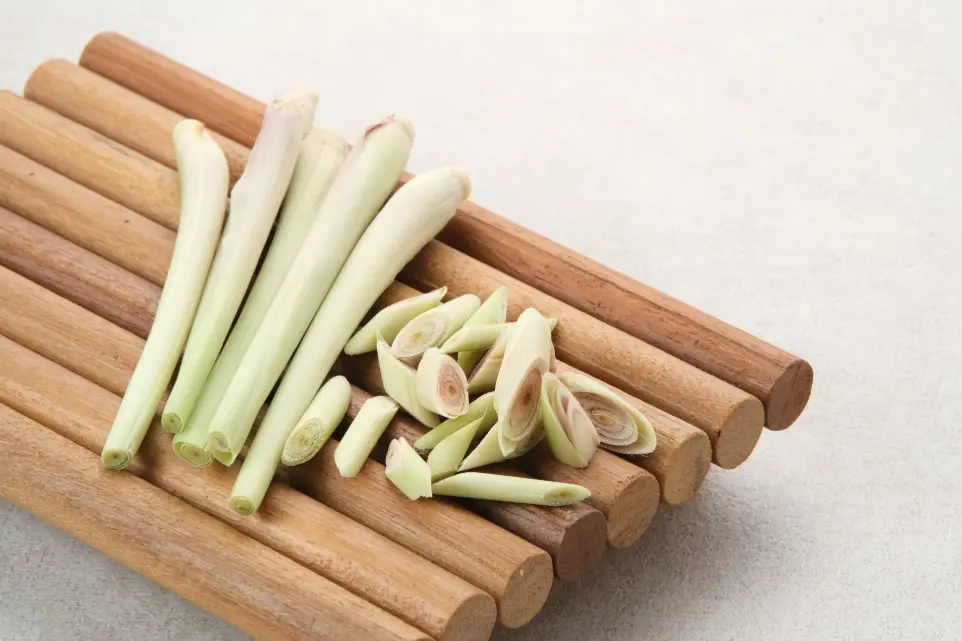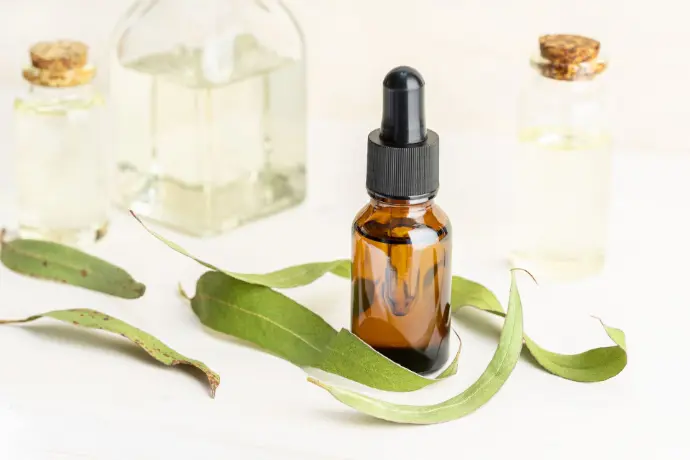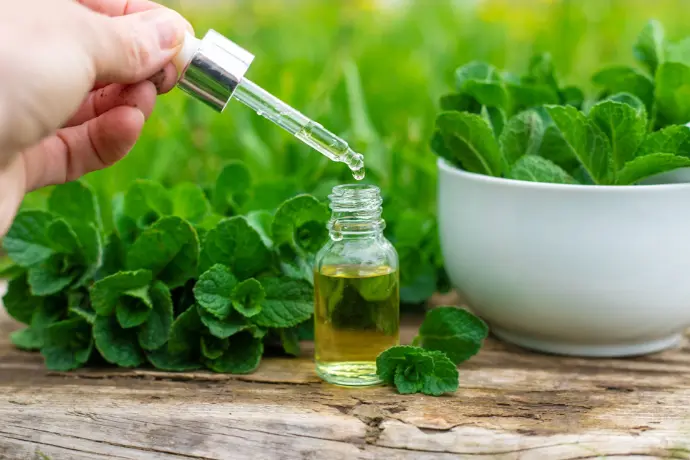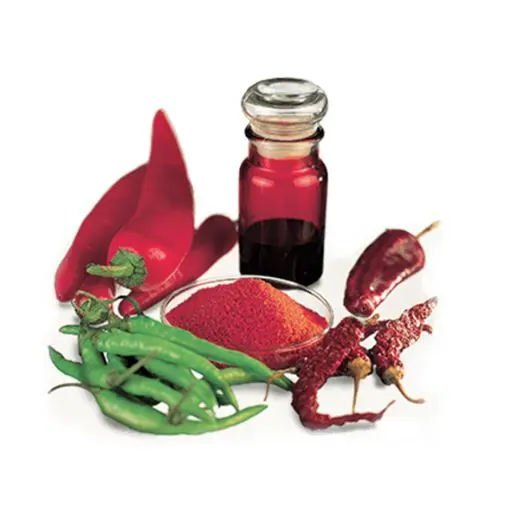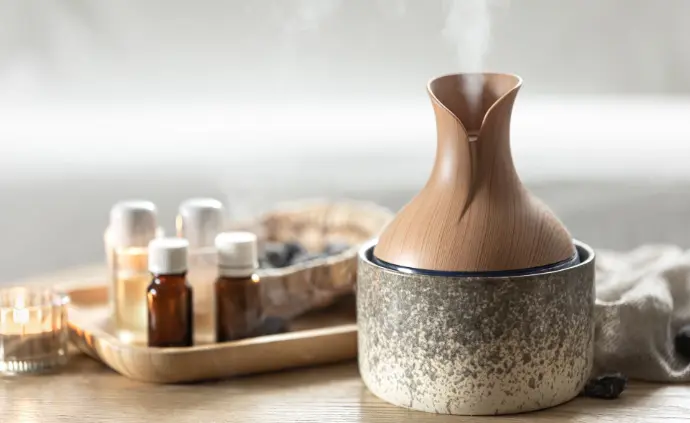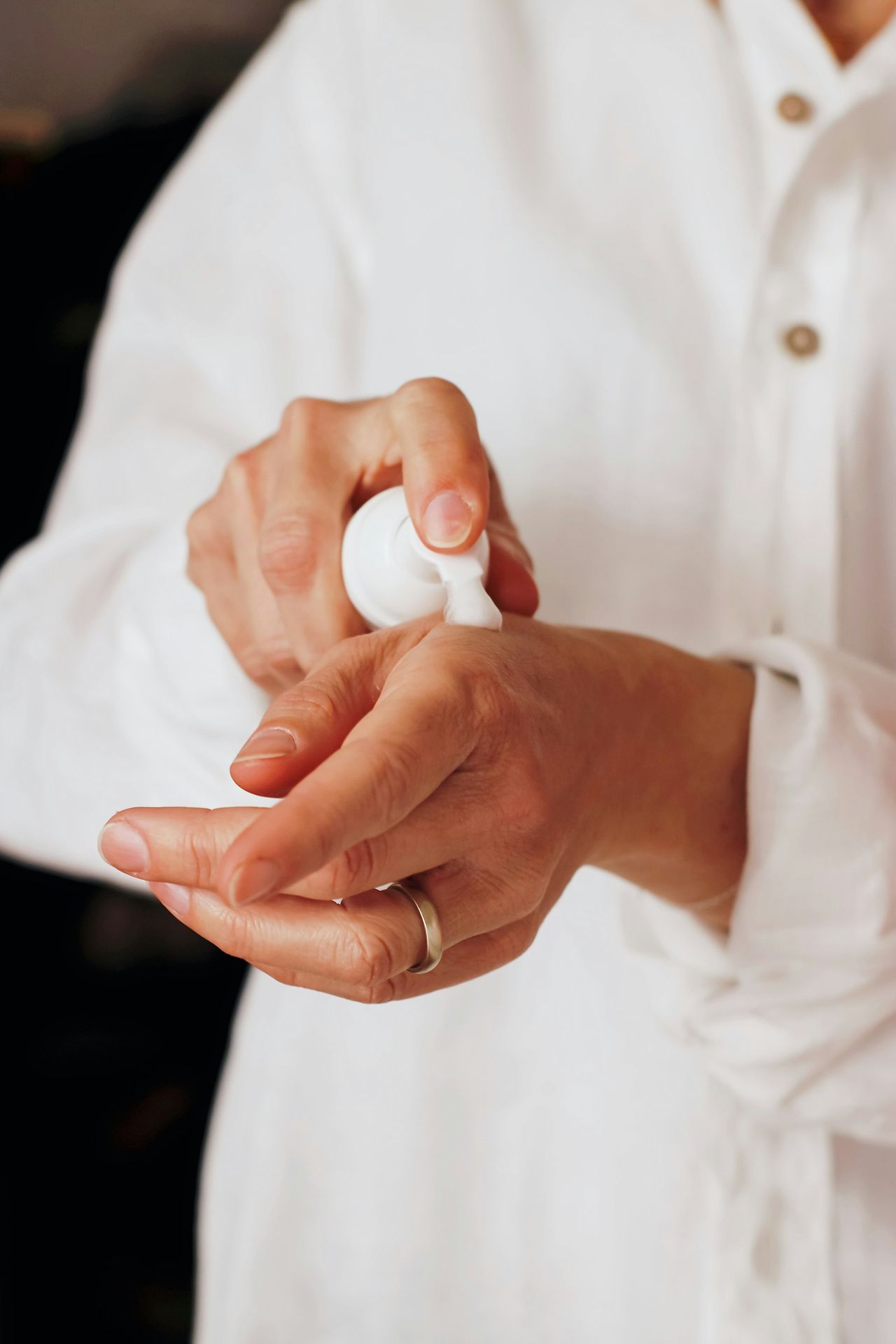About Product
Lemongrass Oil derived from Cymbopogon flexuosus, is a pale yellow to amber-colored essential oil known for its fresh, citrusy, and grassy aroma. Steam distilled from the leaves of the lemongrass plant, this oil is rich in citral (a natural compound comprising geranial and neral), which gives it its signature lemon-like fragrance and a wide range of therapeutic, cosmetic, and industrial applications.
Renowned for its antibacterial, antifungal, anti-inflammatory, analgesic, and insect-repellent properties, lemongrass oil is extensively used in aromatherapy, skincare, perfumery, wellness, and natural cleaning products. In aromatherapy, it is valued for its energizing, mood-lifting, and stress-relieving effects. When diffused, it purifies the air, sharpens focus, and promotes mental clarity.
In skincare and cosmetics, Lemongrass oil acts as a toner, astringent, and natural cleanser, helping to reduce acne, minimize pores, and control excess oil. Its antimicrobial properties make it a popular ingredient in soaps, lotions, deodorants, and scalp treatments, where it helps soothe irritation and refresh the skin.
Lemongrass oil is also used in massage oils and balms for its pain-relieving and muscle-relaxing properties, providing relief from headaches, joint pain, and muscle tension. It blends well with oils like eucalyptus, lavender, and tea tree for synergistic effects.
As a natural insect repellent, it is effective against mosquitoes and other pests, making it a safer alternative in outdoor sprays, candles, and household cleaners. Its fresh aroma also makes it a desirable component in perfumes and fragrances for its uplifting and clean scent.
Overall, Cymbopogon flexuosus Lemongrass Oil is a highly versatile essential oil, valued for its bright citrus fragrance, wide-ranging therapeutic effects, and applications that span from wellness and beauty to home care and personal hygiene.
Composition
- Citral (70–85%) – A mix of geranial and neral, provides the signature lemon aroma and antimicrobial properties.
- Geraniol – Offers a sweet, rosy nuance and enhances antibacterial and skin-friendly effects.
- Limonene – Adds a zesty brightness and supports antioxidant action.
- Myrcene & Linalool – Present in traces, these support mood enhancement and anti-inflammatory properties.
Physical Characteristics
- Appearance: Pale Yellow to yellow liquid
- Odor: Sweet, citrusy with mild floral and earthy notes.
- Taste: Bitter-cirusy, not intended for consumption.
Health Benefits
- Antimicrobial & Antiseptic: Prevents infections; ideal for acne-prone and oily skin.
- Anti-inflammatory: Calms inflammation from arthritis, sore muscles, or skin irritation.
- Stress Reduction: Eases tension and improves sleep quality through aromatherapy.
- Antioxidant: Fights free radicals, promoting youthful skin and immune protection.
Pain Relief: Provides warming comfort when used in massage oils or ointments
Key Features
Source: Derived from the leaves and twigs of the Eucalyptus globulus tree.
Active Ingredients: Eucalyptol (1,8-cineole), alpha-pinene, limonene, and other compounds responsible for its therapeutic and aromatic properties.
Extraction Method: Obtained through steam distillation from fresh eucalyptus leaves and twigs.
Appearance: Clear to pale yellow liquid with a fresh, minty, and woody fragrance.
Applications: Used in perfumes, skincare, haircare, pharmaceuticals, and wellness products.
Health Benefits: Decongestant, antiseptic, anti-inflammatory, pain-relieving, and mental clarity-enhancing.
Application
Fragrance Industry:
- Perfumes & Colognes: Eucalyptus essential oil adds a refreshing, invigorating fragrance to perfumes, colognes, and body sprays, often used in men’s grooming products.
- Room Fresheners & Air Purifiers: Used in air fresheners, diffusers, and sprays to purify the air, enhance freshness, and promote a clean environment.
Cosmetics & Personal Care:
- Skincare: Eucalyptus oil’s antiseptic and anti-inflammatory properties make it a common ingredient in skincare products, such as cleansers, lotions, and acne treatments, where it helps to soothe skin and treat blemishes.
- Haircare: It is often included in shampoos, conditioners, and scalp treatments to improve hair health, reduce dandruff, and stimulate hair growth.
Pharmaceuticals:
- Aromatherapy: Eucalyptus essential oil is widely used in aromatherapy for its ability to clear nasal congestion, ease breathing, and reduce stress.
- Topical Treatments: Used in topical formulations to relieve muscle pain, joint pain, and inflammation, as well as to treat colds and respiratory issues.
Health & Wellness:
- Respiratory Health: Eucalyptus oil is a popular remedy for clearing blocked sinuses, relieving coughs, and alleviating respiratory issues due to its decongestant and expectorant properties.
Pain Relief: Due to its analgesic properties, eucalyptus oil is applied to ease sore muscles, joint pain, and tension headaches
